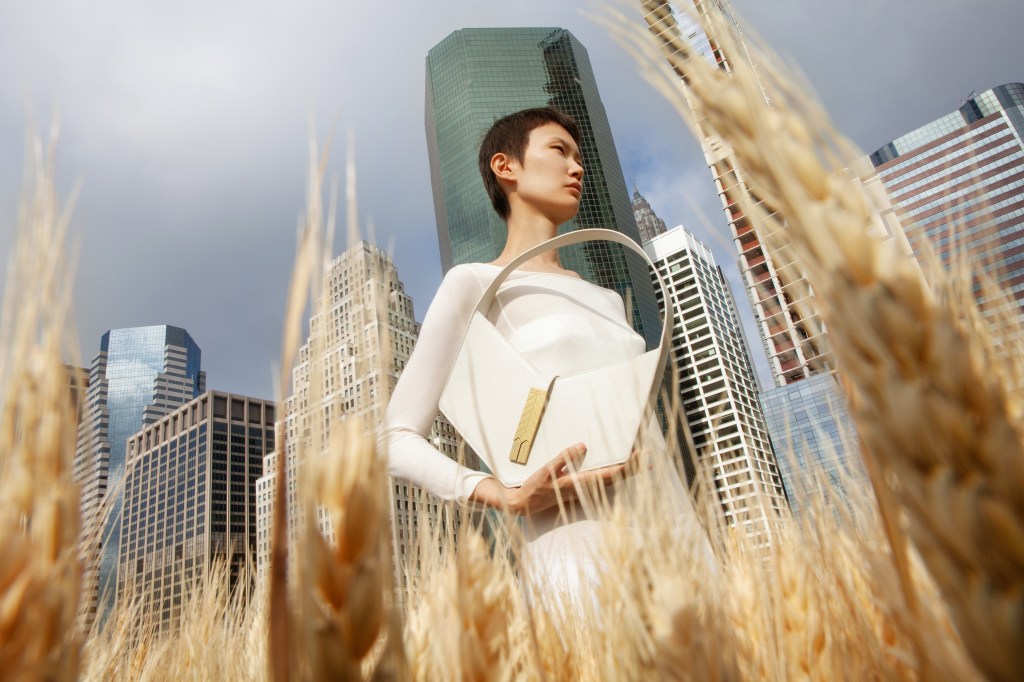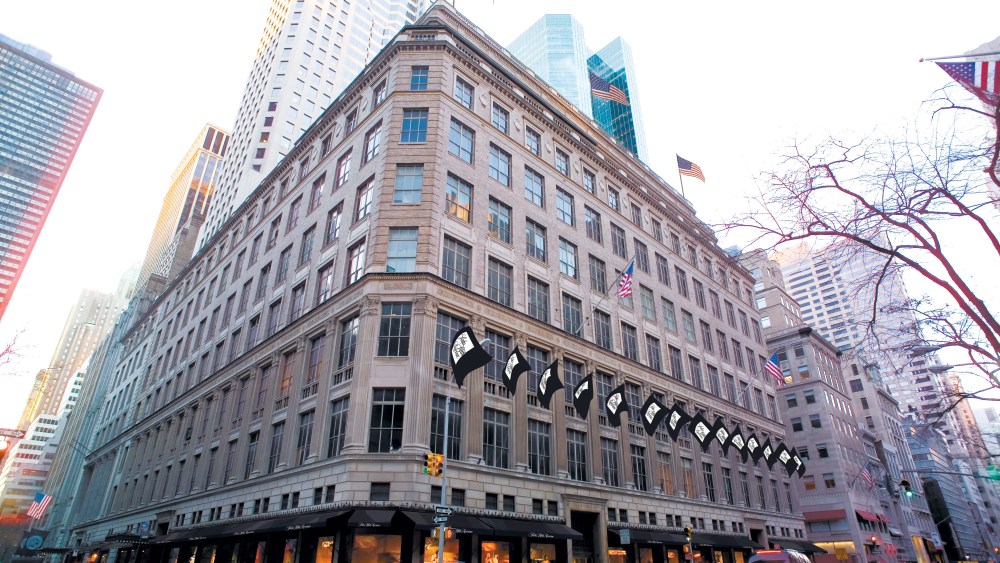Ukrainian designer Svitlana Bevza is launching a teaser of the handbags she showed in her spring 2024 runway show during New York Fashion Week.
Landing on the Bevza website Wednesday, the collection consists of five styles in black or white leather showcasing the brand’s symbolic flat spikelet details (already signature elements of her jewelry), on hardware and straps.
The Kiev-based brand was founded in 2006 and has managed not only to survive but to grow during the Ukraine war.
“My mission is to tell the proper story about Ukraine,” the designer said during a recent visit to L.A. — her first — to connect with press and stylists. “The spikelet is the main symbol of Ukraine, fertile land, a sacred symbol for centuries, so we started using it in 2018 and now it has become very signature. During the war we created a burned spikelet, because they have burned a lot of fields,” she said, showing off a choker with burnished hardware.
When the war started she was lucky enough to have a large inventory of spikelet jewelry, including earrings, bracelets and necklaces, which were embraced by shoppers worldwide and helped support the business.
For the bags, which retail from $570 to $810, the symbolic spikelet hardware takes on an Art Deco feel as gold hardware on neoclassic shapes including an elongated tote big enough to fit a laptop, a top-handle bag, a clutch, and a six-sided geometric silhouette that resembles the spikelet itself.

“I’m not from London or Paris; I’m a girl from Ukraine, that’s why the shapes are a bit specific. They are my own vision,” said Bevza, whose collection is stocked at Bergdorf Goodman, The Frankie Shop and Selfridges, among others.
The bag campaign was shot in New York and the imagery was inspired by Agnes Denes’ “Wheatfield — A Confrontation.” In 1982, the conceptual artist planted a two-acre wheat field on an empty landfill next to the World Trade Center as a universal symbol representing food, energy, commerce and economics, and referencing mismanagement, waste, world hunger and ecological concerns.
Bevza has been going back and forth from London, where her kids are now in school, to Kiev, where her husband has remained.
“You have to take a train to Poland to cross the border, so it takes time, but all the factories work and it’s important to contribute to the economics, to keep the textile industry going, and the tradition of handmade craft,” she said, noting the other symbols in her spring ready-to-wear collection of ’50s-inspired tops and dresses with bullet bra details, pants slashed at the sides to reveal boxer shorts, marigold florals and hand-beading.
“The marigold is the main accent, it grows everywhere and in Ukrainian it means revival. That’s how we put positivity in the collection because we have so much real drama in Ukraine but we want to keep the positive note because we believe we are fighting for our cultural heritage.”




